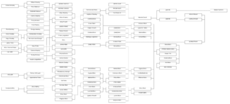Fantasy genealogy
Topic: Social
 From HandWiki - Reading time: 2 min
From HandWiki - Reading time: 2 min
Fantasy genealogies are mythical, fictional or fabricated pedigrees, usually to enhance the status of the descendant.[1] Many claimed ancestries are considered by modern scholars to be fabrications, especially the claims of kings and emperors who trace their ancestry to gods or the founders of their civilization. Such pedigrees also have a moral message to their subjects, allies and enemies. Some national epics or holy scriptures associate success, blessing and good with the "rightful dynasty" and wars, catastrophes and diseases with usurper rulers. In this moralism, fictional genealogies have analogies with allegory, fable and parable.
Examples

Elizabeth II
Chroniclers of Germanic peoples traced the ancestry of their kings back to the god Wōden (Odin). If such descents were true, Queen Elizabeth II would be a descendant of Woden, via the kings of Wessex.[2]
Emperors of Japan
Japanese imperial dynasty is mythically descended from Amaterasu, the Sun goddess.[3]
Fraudulent Genealogies
Fraudulent genealogies are created through honest mistakes, exaggerations, and deceit. The fraudulent pedigrees of Gustave Anjou are one example of deceit. [4]
Genealogies of the fictional characters
J. R. R. Tolkien invented many family trees of the characters from his high fantasy novel The Lord of the Rings.[5]
One notable fictional pedigree is the family tree of The Noble and Most Ancient House of Black from Harry Potter, invented by J. K. Rowling.
George R. R. Martin's Epic A Song of Ice and Fire features a significant quantity of fictional noble families, most of them with documented in-universe ancestry.
Sources
- ↑ Eviatar Zerubavel (2011). Ancestors and Relatives:Genealogy, Identity, and Community.
- ↑ A pedigree depicting legendary descent of Cerdic of Wessex from Woden
- ↑ C. Scott Littleton (2005). Gods, goddesses, and mythology.
- ↑ Fraudulent Genealogies
- ↑ A Genealogy of Middle Earth
 KSF
KSF